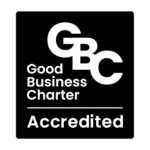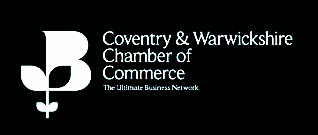
When I talk to people who have a website about SEO, one of the first questions I get asked is, “Can I do SEO myself?” And the short answer is yes, but the better question is “should you?”
Yes, of course you can do SEO yourself. Just like you can plumb your own house, treat your own broken arm or represent yourself in court, but should you? Really??
There is a perception that SEO is basically a checklist to follow. That if you choose the right keyword, you just need to add it in all the right places and you will shoot up the rankings.
Admittedly for some websites there may be quick and easy wins that have a genuine impact on your bottom line, especially if the site has never had SEO done before. But for more established sites in competitive markets that is unlikely to be the case and letting someone with little experience make changes can do more harm than good. And as a friend of mine discovered when they burst a hot water pipe trying to hang a picture in the living room, even simple DIY tasks can have major consequences when they are done without enough knowledge or planning.
You may end up wasting your own time and still needing a professional to come and fix your mess. Bad SEO can, at its worst, cause your business to be wiped out from search engines.
Organic search is still the source of over 50% of all website traffic. It converts well too. A recent report by FirstPageSage found it to be the highest converting channel for B2B sales and second only to email marketing for B2C. Since search engine visibility is based on a ranking system that considers content quality, relevance and reliability, good rankings can also build trust and credibility with your customers. Plus, it has a high return on investment, since you don’t have to pay to appear in organic search results.
If you’re going to do SEO yourself you need to invest time learning how to do it, as well as the time it takes to implement changes, such as: writing new content, building backlinks or technical optimisation of your website. Doing all this is going to take you away from running your business and doing what you are best at. If you were to estimate what the opportunity cost is of doing SEO yourself, would it be more or less than the cost of hiring an expert?
As well as greater experience and efficiency, an expert is also likely to have access to more tools and software, which you would need to pay to access yourself. Why not get some quotes to compare whether it’s cost-effective to do your own SEO. If you contact withdigital we would love to have a chat, discuss the best strategy for you and provide a no-obligation quote for getting started.
If you have got time to learn SEO yourself there are plenty of useful resources out there.
My recommendation would be to start with The SEO Roadmap created by LearningSEO.io
Start by learning the fundamentals and how to create an SEO strategy, before going more in-depth, focusing on what is most relevant to your website and industry. There is lots of specific guidance available for e-commerce SEO, local SEO, international SEO and many other sub-categories of search marketing.
It will also help to be familiar with what Google says about SEO. They make the rules and set the playing field, so we should be aware of what their advice is.
With Google’s algorithm being updated on a regular basis and AI creating opportunities and challenges left, right and centre, keeping up to date can be difficult. Following some of the top voices in SEO on social media can help you stay in touch with the latest developments. Here are a few recommendations:
If you are doing SEO entirely by yourself you need to have a well-rounded knowledge, covering: research and strategy, content optimisation, technical SEO, link building and measuring performance. Major flaws in any of these areas can offset all the good work you do elsewhere.
Before making any changes to your site you need to know your audience and the market you are competing in. You should consider:
This is where you should have the advantage over the SEO professional, as no-one should know your audience better than you. However, taking time to do this research and taking advantage of the keyword data available in SEO tools is highly worthwhile, as you may be surprised by what you find.
For the majority of organisations after you’ve come up with an SEO Strategy there will be some content creation involved. If you’re already writing content for your website or marketing materials, then knowing more about optimising content for search engines will be really useful. The main guidance is to produce high quality content that your customers are going to get value for. Hopefully you are doing that already. Trying to game the search engines by stuffing your content full of keywords is not the way to go and is highly unlikely to work in 2025. Instead make sure you are covering all the content your customer is likely to need and that relevant, related content is easy to find and in a logical order. Consider the journey you want your customer to take and where you want them to end up.
If you are not a copywriter it is ok to use AI to help you, but make sure that the end result is accurate, aligns with your brand and opinions and provides value to your potential customers.
Assuming you’re not already a computer programmer already, technical SEO has a higher barrier to entry than content optimisation. Learning the basics of how search engines crawl and index websites is the first step, before learning the technical elements that help search engines understand and navigate the website.
Whether you are then able to implement the technical changes that are needed will depend on how your site is built. WordPress for example has lots of plugins available that mean you can do a lot of common technical SEO tasks yourself. This can include: creating XML sitemaps, updating robots.txt, internal navigation, mobile optimisation, structured data and page speed. Other Content Management Systems may not provide easy access to do all of this and you may need a web developer to help you. However not all SEO professionals are programmers either, so you may still need support from a web developer if you are working with a freelance SEO consultant rather than a larger team.
Be aware that there are lots of SEO tools that will audit your site and tell you all the technical problems you have, but they usually can’t tell you what impact fixing them will have. If it returns a list of 100 errors and warnings it takes a considerable amount of experience to be able to effectively prioritise tasks and decide whether they are worthwhile doing for your site. If you don’t understand why you need to do any of these tasks you probably shouldn’t do it.
Links signal trust and reliability to search engines and yes they are still important for SEO, but search engines are now much better at assessing which links are more meaningful than others. Links from highly respected organisations or those in a related sector are going to be much more useful. Buying links is not recommended, especially from link farms that will sell links to thousands of websites. This is against Google’s terms of service and they can usually identify and ignore these unnatural links, meaning you will have wasted your money and possibly even face a penalty. Instead try to create content that is so good that people will want to link to it. Yes, you will probably need to give it a push to help it find it’s way to the right publishers, whether through social media or contacting them directly, but with good content and great distribution the links should come.
There are loads more tools out there beyond this list, but these may help you get started. All of the above have some free features available for you to try out before you buy.
Even if you start learning SEO and realise that you need help, the time you spent has not been wasted. Everything you have learned will help you identify the right SEO partner for you and understand more about what they are doing and why. After all, one of the reasons lots of people want to do it themselves is because it can be difficult to find people you can trust to do a good job. More knowledge will give you a better chance of identifying the best team or person for the job.
You could also outsource some of your SEO and continue doing the bits you are more comfortable with yourself. For instance, you could write the content while your SEO agency manages technical SEO and link building. If you are ready to speak to a specialist about taking your website to the next level, why not contact withdigital today.




